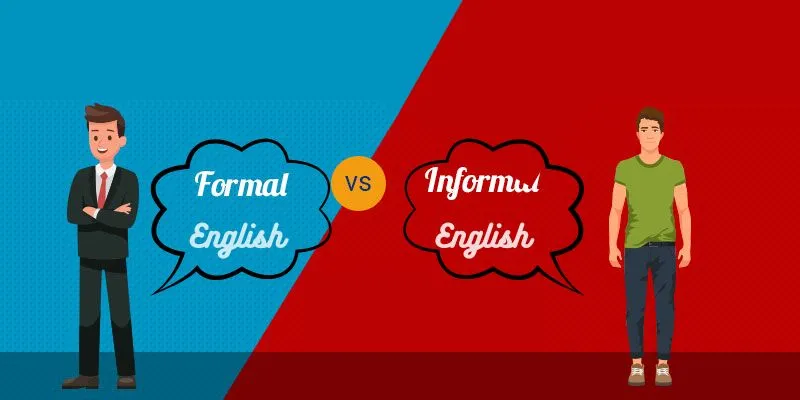English, like any language, adapts to the situation and audience. Whether you’re drafting an email to your boss or chatting with friends on WhatsApp, the tone, structure, and choice of words change based on the context. This distinction is what we call formal and informal English. Understanding when to use each form is essential for clear and effective communication. If you’re keen to improve your English fluency or learn the nuances of tone and style, enrolling in Spoken English Classes in Chennai could be your next step. For now, let’s break down the key differences between formal and informal English in a simple, friendly way.
Understanding Formal English
Formal English is used in professional, academic, or official settings where clarity, precision, and politeness are paramount. It follows grammatical rules strictly and avoids contractions, slang, and colloquialisms.
Think about situations like job interviews, business emails, academic essays, or official letters. In these contexts, you’re expected to use well-structured sentences and a polite tone. For example:
- Formal: I regret to inform you that I will be unable to attend the meeting due to unforeseen circumstances.
Wondering How can learning German improve your spoken English skills? The process of learning German enhances your understanding of sentence structure, vocabulary, and grammar, which can directly impact your English fluency. By mastering German, you’ll improve your language cognition and communication abilities, boosting your spoken English skills in the process.
Understanding Informal English
On the other hand, informal English is relaxed and conversational. It’s what you use when speaking to friends, family, or close colleagues. Informal English often includes contractions, idioms, and even regional slang, making it sound more personal and engaging.
For instance:
- Informal: Sorry, I can’t make it to the meeting—something came up!
Informal English is perfect for casual emails, text messages, and friendly conversations. While it’s fun and easygoing, using it in the wrong context (like a business proposal) can appear unprofessional.
If you’d like to practice both formal and informal speaking styles, English Speaking Classes in Bangalore offer practical sessions to fine-tune your skills.
Key Differences Between Formal and Informal English
Let’s look at some specific areas where these two styles differ:
1. Vocabulary
- Formal: Uses precise, often professional language.
Example: Please ensure the report is submitted by the deadline. - Informal: Includes everyday words and phrases.
Example: Don’t forget to send the report on time!
2. Grammar and Sentence Structure
- Formal: Longer, more complex sentences with complete grammar.
Example: It is imperative that we address this issue promptly. - Informal: Shorter, simpler sentences; contractions are common.
Example: We need to sort this out ASAP.
3. Tone
- Formal: Polite, distant, and objective.
Example: I appreciate your assistance in this matter. - Informal: Friendly, warm, and personal.
Example: Thanks a lot for helping out!
Also Check: How Can Learning German Improve Your Spoken English Skills?
When to Use Formal and Informal English
Choosing the right style depends on your audience and purpose. Here are some guidelines:
- Use Formal English for:
- Business or work communication (emails, reports).
- Academic writing (essays, research papers).
- Speaking to authority figures or in professional settings.
- Use Informal English for:
- Chats with friends and family.
- Social media posts or casual emails.
- Conversations in relaxed settings.
If you’re unsure about which tone to adopt, joining the Best Spoken English Classes in Chennai can help you navigate these situations confidently.
Wondering How can I track my progress in learning two languages? Start by setting clear milestones, like mastering basic vocabulary or holding simple conversations. Use language apps, take regular quizzes, or keep a journal to monitor improvements. Tracking progress helps you stay motivated and ensures consistent growth in both languages.
Examples in Everyday Scenarios
To make the distinction clearer, let’s consider a few common scenarios:
Making a Request
- Formal: Could you please forward the document to me at your earliest convenience?
- Informal: Can you send me the doc when you get a chance?
Apologizing
- Formal: I apologize for the inconvenience caused.
- Informal: Sorry about that!
Expressing Gratitude
- Formal: I sincerely appreciate your support in this matter.
- Informal: Thanks a ton for your help!
Understanding these differences can help you switch effortlessly between the two styles. If you’re struggling, taking an English Speaking Course in Bangalore can provide personalized guidance.
Also Check: How to Boost Your Vocabulary for IELTS?
Tips for Mastering Both Styles
Here are a few tips to help you become fluent in both formal and informal English:
- Know Your Audience
Always consider who you’re speaking or writing to. This will help you decide the appropriate tone and style. - Expand Your Vocabulary
Learn words and phrases suited to both contexts. For example, practice professional terms for work and fun slang for casual chats. - Practice Speaking and Writing
The more you use English in different situations, the easier it will be to adapt your style. Enrolling in Spoken English Classes Bangalore offers plenty of opportunities for real-world practice. - Read and Observe
Pay attention to how English is used in formal emails, business meetings, or casual conversations. Imitating these styles can help you improve.
Why Learning Both Styles Matters
Being proficient in both formal and informal English gives you a significant advantage. It allows you to communicate effectively in any situation, whether you’re presenting a business proposal, writing an academic paper, or catching up with friends.
If you want to build a solid foundation in English, consider joining the Best Spoken English Classes in Chennai or Bangalore. These programs offer tailored lessons, helping you master both styles with confidence. Also, check out the Training Institute in Bangalore.

